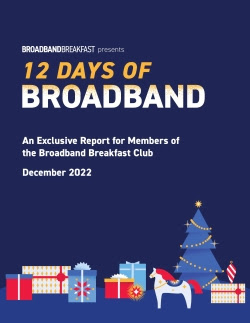Amid Big Tech Controversies, Section 230’s Future is Uncertain
The Supreme Court is preparing to hear two cases related to content moderation and platform liability.

From the 12 Days of Broadband:
- On the Third Day of Broadband, my true love sent to me:
Section Two-30 of the Communications Decency Act
24 Reverse-Preemption Pole Attachment States
and A Symmetrical Gigabit Network.

The past year has seen many controversial decisions from big tech platforms, but 2022 might end up being the last year that such decisions are shielded by the liability protections of Section 230 of the Telecommunications Act.
Many actors are now calling for the statue’s repeal or reformulation. Conservative populists on the right argue that it enables social media giants to silence conservative speech. Progressives on the left believe it allows platforms to shirk responsibility for moderating hate speech and misinformation.

Download the complete 12 Days of Broadband report
Of course, Section 230 still has defenders from across the political spectrum. Indeed, none of the many proposed bills for legislative change have garnered much traction. Furthermore, new Twitter CEO Elon Musk’s takeover has demonstrated the pitfalls of a pure “free speech” approach to content moderation: It took just days for his “comedy is legal again” declaration to turn into “tricking people is not OK” — during which time parody tweets reportedly cost advertisers billions.
And despite Musk’s initially stated intention to allow all legally permissible content, he decided to suspend Ye (formerly Kanye West) from Twitter in December for tweeting a swastika graphic. Later that month, he took still bolder steps, blocking links to competitor platforms as well as suspending the accounts of several tech journalists and an account that tracked his private jet based on public flight data.
On a larger scale, Florida’s attorney general asked the Supreme Court to review a law that would limit online platforms’ ability to moderate content after an appeals court ruled that the law violated the First Amendment. A similar Texas law that forbids content moderation based on “viewpoint” is on hold pending an appeal to the Supreme Court.
While the Court has not yet taken up those cases, it has agreed to hear two others related to Section 230: Gonzalez v. Google and Twitter v. Taamneh, both of which ask if tech companies can be held liable for terrorist content on their platforms.
Given the Court’s conservative majority, and the fact that at least one justice (Clarence Thomas) has openly argued that social media companies should be regulated as common carriers, Section 230’s 25-year reign might be coming to an end.








